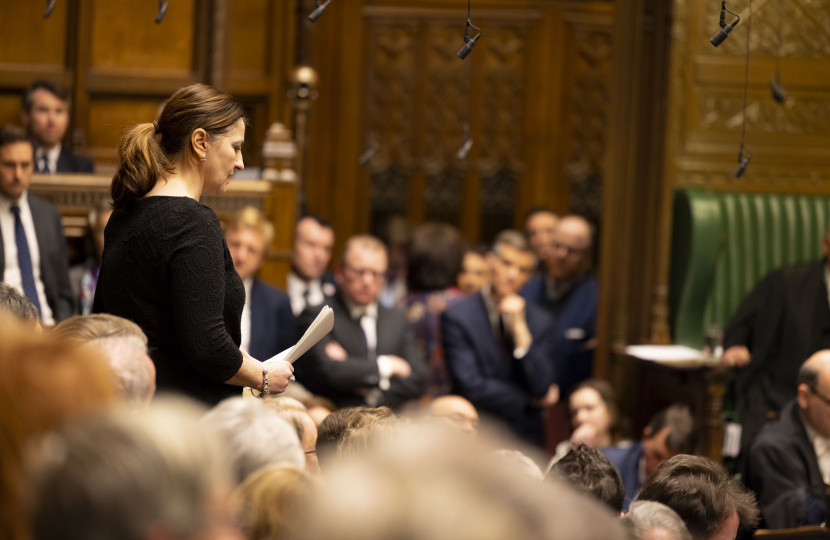
Eastbourne and Willingdon MP Caroline Ansell has led a parliamentary debate to raise more awareness of how pupils with illnesses like cancer can ensure they receive their GCSE grades.
The move came following a campaign by friends and family of 16-year-old local student Lara Kyprianou-Hickman who was initially told she would not receive her GCSEs if she could not sit the exams following a cancer diagnosis.
Caroline took up her cause with the Department for Education and the exams watchdog Ofqual as it has become clear that the wrong advice is being given.
The MP discovered that there was a mechanism for Lara and many others in similar situations to receive their GCSEs but it was not well known by schools. Potentially thousands of young people across the country could be missing out on qualifications as a result.
To raise awareness, Caroline held a Westminster Hall debate last Week.
“If a candidate’s disability prevents them from sitting an exam in the traditional way, existing equalities legislation allows for the awarding of grades by the board if the centre can provide suitable evidence,” she told MPs.
“I was told that there was no requirement for Lara, in her situation, to sit one paper, as had been suggested. By virtue of her diagnosis, she is deemed to have a disability under the Equality Act 2010 and she is eligible for reasonable adjustments.
“At the meeting with Ofqual, I learned that several hundred students were awarded grades in that way last year, allowing them to move on with their lives alongside their peers.”
But Caroline said the communication of this new process brought in following the pandemic had failed.
“The guidance last year was clearly too oblique if even high-performing and good schools in my constituency had not picked up on the change,” she explained.
“Although several hundred students were awarded grades in that way, I know of at least four in my constituency of Eastbourne who would be eligible. If that were replicated across the 650 constituencies of this land, it would not be several hundred students but thousands.
“I fear that some students may have been overlooked and disenfranchised because their school did not recognise the signposting in the guidance last year.”
She added: “Through my experience of supporting Lara, it has become apparent that the implications of the guidance with respect to the Equality Act have not been universally understood or applied.
“As recently as a few weeks ago, we know of a school in Brighton which repeated the advice that a sick student would need to sit at least one exam to qualify for this process.
“This is year two of the change, and the same wrong advice is being given."
Schools minister Nick Gibb said the Joint Council for Qualifications (JCQ) had now published its updated reasonable adjustment guidance on 5 May 2023.
He explained the JCQ has shared the updated guidance with the education sector and with schools. It will also be in a newsletter to schools and colleges this week.
“Our key advice to students, and parents of students, who find themselves in difficult situations prior to their exams is to speak to their school or college, which can then contact the exam board directly on their behalf to discuss possible arrangements for them to be assessed and to receive a grade," the minister added.

